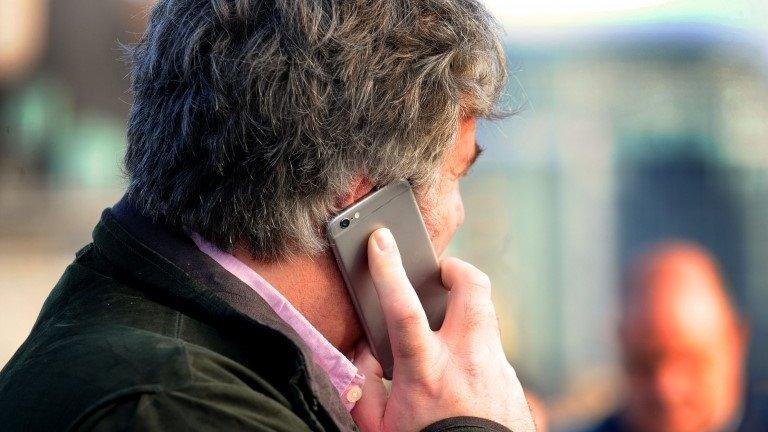Life inside a mobile telephone 'not spot'
- Published
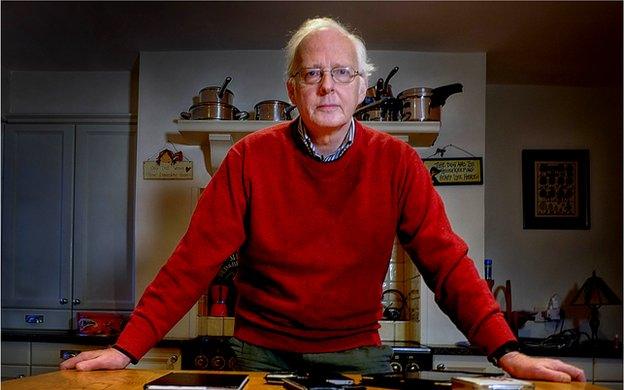
Heart surgeon Neville Jamieson has three separate mobile telephones at his Suffolk home.
While some people can download entire movies to their mobile telephones in seconds, there are others who can neither make a call nor send a text. These are the inhabitants of so-called 'not spots'. So is silence still golden in the information age?
Neville Jamieson is a man most people hope could be reached in an emergency.
He is a heart surgeon at Addenbrooke's Hospital in Cambridge.
But when he gets about five miles (8km) from his Suffolk home, the mobile telephone provided by the hospital - which has the necessary security measures to give access to patient information - loses reception.
He has entered one of England's numerous mobile telephone 'not spots'.
Mr Jamieson, of Cowlinge, Suffolk, has two other mobile telephones, each with a different network provider. One works off broadband, which has been intermittent and does not work in the garden, while the third has reception only sporadically in certain areas of the house.

Why do 'not spots' exist?
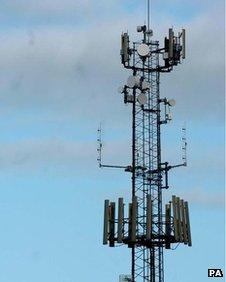
Lack of masts. Mobile operators have not always been able to put up masts in certain areas because of planning constraints, landowner unwillingness to supply a site or local campaigns against masts.
Topography also plays a part, with hills, valleys and woodlands all inhibiting signals.
Some properties - such as stone cottages and homes with metal framed windows - also prevent radio reception.
Cost. The Mobile Operators Association says: "Masts in less densely populated rural areas are usually more expensive to install, in exchange for fewer potential customers: most rural masts run at a loss."
Last December EE, O2, Three and Vodafone agreed to invest £5bn and guarantee coverage across 90% of the UK by 2017.
For more: Mobile Operators Association, external

Asked what he does if he is expecting an issue with a patient during the evening, Mr Jamieson said: "I'll sit in the living room by the landline telephone and stay there."
But he does not want to be chained to his living room.
"I'm available on a 24-hour basis," says Mr Jamieson. "A phone in your pocket is just perfect. So please give us a mobile signal that works."
For thousands of years, farmers managed perfectly well without mobile telephones.
But the industry has changed, says George Gittus, who farms in Little Saxham, near Bury St Edmunds.
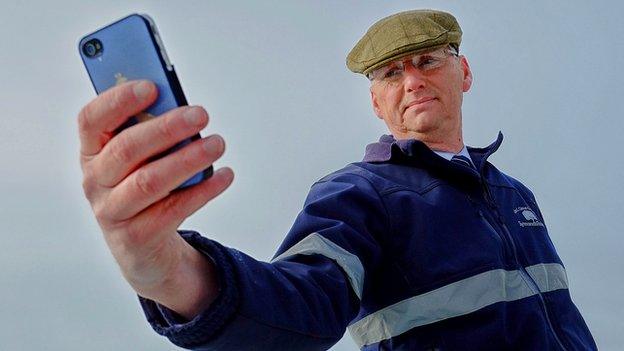
Farmer George Gittus says modern farms are now largely dependent on mobile telephone technology
Most people think farmers only need a mobile telephone if they get into trouble out on their land. Not so.
"Nowadays, like many businesses in the urban environment, farming is able to control a lot of what it does via mobile phone," says Mr Gittus,
"We've got computer controlled systems that work via a mobile phone."
Mr Gittus's piggery systems and the control system for the farm's bio gas plant both work via mobile telephone.
"Not only can I not control them without a mobile telephone signal, I also cannot get the alarm signals that they send about potential pollution and other situations like that."
But such systems only work if the farmer can get a signal. And that, says Mr Gittus, is not always guaranteed.
Mr Gittus said rural Britain was at risk of being left behind in what he described as "phone poverty".
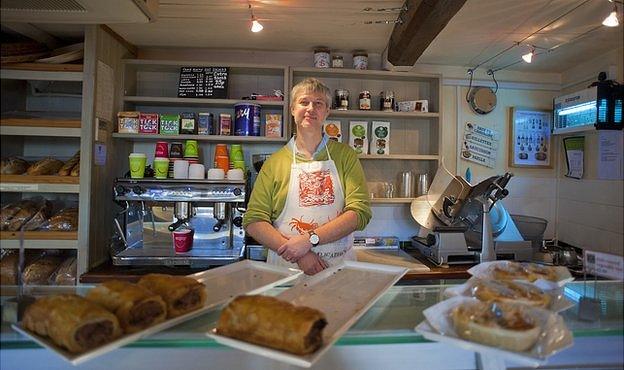
Nick Howard says the new mobile telephone network in the north Norfolk village of Blakeney, has made a "huge difference"
So what is the future for these remote 'not spots'?
The picturesque village of Blakeney might have the answer.
It is one of a number of villages in which Vodafone has installed a series of discreet mini phone masts, creating a reliable network in an area of salt marsh where a traditional mast would not have been allowed.
Dr Robert Matthews, of Vodafone, said: "Without a mast you can't use your mobile phones.
"In the past people have objected to our structures for whatever reason and these objections and concerns have led to the fact that we haven't been able to develop our network as quickly as we'd like."
Delicatessen owner Nick Howard said the new system was "revolutionary". "It means we can get hold of suppliers to sort out for restocking purposes, customers can get hold of us and place orders.
"It has made a huge difference."
Inside Out will be broadcast on BBC One in the east of England at 19:30 GMT and available on iPlayer afterwards.
- Published18 December 2014
